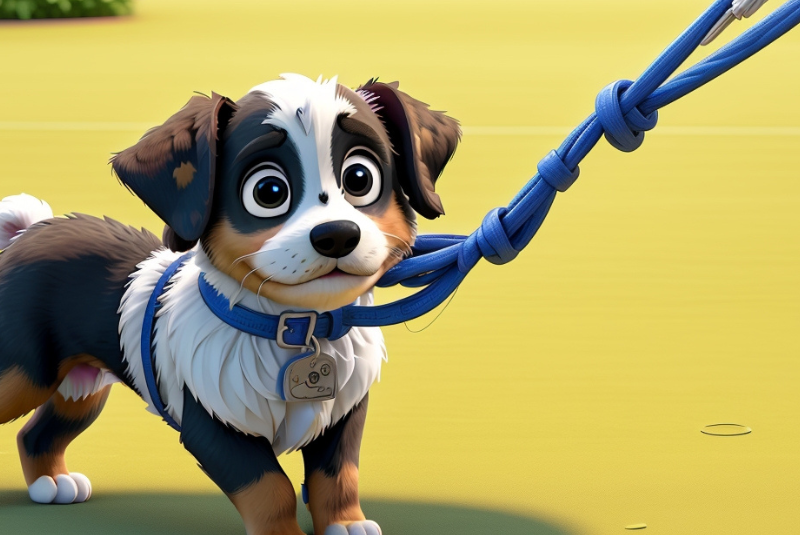If you are searching for “House Training Your Puppy?” Bringing a new puppy into your home is a wonderful event, but it also entails teaching them basic behavior, including house training. This critical procedure establishes the basis for a well-behaved and happy pet.
Introduction to House Training
Understanding the importance of house training is the initial step towards a successful training journey. It’s not just about preventing accidents; it’s about fostering a bond with your pup and creating a comfortable environment for both of you. Setting realistic expectations early on is key; puppies take time to learn and adapt.
Preparation for House Training Your Puppy?
Before diving into training, it’s essential to prepare. Establishing a routine helps your puppy anticipate when it’s time for bathroom breaks, meals, and play. Additionally, gathering necessary supplies like a crate, cleaning products, and treats sets the stage for effective training.
Potty Training an 8-Week-Old Puppy
Potty training an 8-week-old puppy can take some patience and consistency, but it’s doable! Here are some steps you can follow:

- Establish a Routine: Take your puppy outside frequently, especially after eating, playing, or waking up. Puppies at this age might need to go every 30–60 minutes.
- Choose a Specific Spot: Take your puppy to the same spot each time to do their business. This helps them associate that spot with going potty.
- Use Positive Reinforcement: When your puppy goes potty outside, praise them enthusiastically and offer a treat immediately afterward. This reinforces the behavior you want.
- Watch for Signs: Watch your puppy for signs they need to go, like sniffing around, circling, or suddenly becoming restless. If you notice these signs, take them outside right away.
- Supervise and Contain: Keep a close eye on your puppy when they’re indoors. Use a crate or a small, confined area when you can’t supervise. Dogs generally won’t eliminate where they sleep, so the crate can be a useful tool for training.
- Clean Accidents Properly: If your puppy has an accident indoors, clean it up thoroughly using an enzymatic cleaner. This helps eliminate the odor, preventing your puppy from being attracted to that spot again.
- Be Patient: Potty training takes time, especially with a young puppy. Don’t get frustrated with accidents—they’re a normal part of the learning process.
Remember, consistency is key. The more consistent you are with the routine, praise, and positive reinforcement, the faster your puppy will learn. And don’t forget, lots of love and patience go a long way in training your new furry friend!
Methods of House Training Your Puppy?
Crate training is a widely used and effective method. It teaches puppies to associate their crate as a safe space and helps control their bladder. Positive reinforcement techniques, such as praising and rewarding desired behavior, encourage your puppy to repeat good habits. Consistency across training sessions is vital for your puppy to grasp the concepts quickly.
Common Challenges and Solutions
Accidents are inevitable during the training process. Dealing with them calmly, cleaning thoroughly, and avoiding punishment is crucial. Patience and persistence are virtues; remember, every mistake is a learning opportunity for your puppy.
Tips for Effective Training

Supervision is key during the early stages of training. Keeping an eye on your puppy helps you recognize their cues and prevent accidents. Reward-based training motivates your puppy to behave well while avoiding punishment and maintaining a positive learning environment.
Adjusting the Training as Your Puppy Grows
As your puppy grows, their needs and behaviors change. Adapting to these developmental stages is essential. Fine-tune your training approach accordingly to accommodate their evolving needs.
Conclusion
In the above, we discuss House Training Your Puppy? House training your puppy requires commitment, patience, and consistency. By following these steps and being actively involved in your puppy’s learning process, you’re paving the way for a well-mannered and happy companion.
Read Also On Quora: How do I potty train a puppy?
How long does house training usually take?
House training can vary depending on the puppy and the consistency of the training. It typically takes a few weeks to a few months.
What if my puppy keeps having accidents?
Revisit the training routine and ensure consistency. Also, consult a vet to rule out any medical issues.
Can punishment be effective in-house training?
Avoid punishment as it can create fear and confusion in your puppy, hindering the training process.
Is crate training cruel?
When done properly, crate training provides a safe space for your puppy and aids in-house training without being cruel.
At what age should I start housetraining my puppy?
Start as early as possible, ideally around 8 to 12 weeks, as puppies are more receptive to learning at this age.
